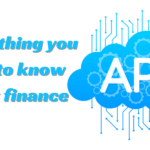How Educational Loan Helps Applicants Enroll in the Program of Choice
Every year, the most talented applicants from the country become students at the university. Still, the competition is very high, and not very gifted guys always manage to enter the budgetary basis of education. The opportunity to graduate in a dream specialty can provide educational credit.
An education loan is an excellent opportunity for admission if you do not have the entire amount to pay for education at once. Perhaps this method will be helpful to those who did not study well at school but at the same time have grand ambitions. Not all teenagers begin to prepare for admission to a university immediately.
When looking for a university, people can find something interesting to learn, set a clear goal, and be ready to take risks. Credit can help them realize their goal.
How do student loans differ from other loans?
The amount of educational credit should be enough for the entire study period. Student loan repayments are deferred until the end of studies, or only interest is repaid during studies. Also, a loan should be issued from the age of fourteen and not from eighteen.
It is possible to extend the loan term for good reason. In these points, an educational loan differs sharply from a consumer loan, the repayment terms of which would be impossible for students. Thus, the applicant can take a loan under the parents’ guarantee and independently pay for education at the university. It is also essential to study well.
Educational loan: pros and cons
| Pros | Cons |
|---|---|
| Access to Education: Allows individuals to pursue higher education when they might not have the means otherwise. | Debt Accumulation: Borrowers must repay the loan with interest, potentially leading to a significant debt burden. |
| Investment in the Future: Education is an investment in one’s future earning potential and career opportunities. | Financial Stress: Loan repayments can cause financial strain, especially if post-graduation income is lower than expected. |
| Flexible Repayment Options: Many loans offer various repayment plans, including income-based options. | Interest Accrual: Interest on the loan accrues over time, increasing the total amount owed. |
| Build Credit History: Timely repayment of educational loans can help establish a positive credit history. | Dependency on Income: Income-based repayment plans may require borrowers to pay a percentage of their income, potentially impacting their financial freedom. |
| Tax Benefits: Some educational loans offer tax deductions on interest payments, reducing overall tax liability. | Impact on Financial Goals: Loan repayments may delay other financial goals, such as buying a home or saving for retirement. |
| Enhance Skills and Knowledge: Education obtained through loans can lead to personal and professional growth, enhancing career prospects. | Limited Eligibility: Not all individuals may qualify for educational loans, particularly those with poor credit history or insufficient income. |
Educational loans are issued to pay for studies in higher and secondary educational institutions, advanced training courses, and training. Typically, student loan programs provide a low-interest rate, but there are also disadvantages. Budgeting places and free education make it possible not to think about where to get money for education. However, banks offer favorable loan programs that applicants can take advantage of.
Education loan
This financial service implies that a long-term bank loan can only be spent on educational expenses. It is issued to schoolchildren preparing for admission and students of higher and secondary educational institutions.
Pros of student loans
The main advantage of educational loans is the ability to relieve the unbearable financial burden during study and devote all the time to education. The bank will transfer the necessary amount to the educational institution, and you don’t have to worry about missing deadlines.
Cons of educational loans
Thus, an educational loan is a convenient and affordable way to pay for your studies at a good university. But this program also has its drawbacks. First of all, potential borrowers are stopped by overpayment. In addition to the cost of education, you will also have to pay interest to the bank.
Educational loan programs vary from bank to bank. Some financial institutions cooperate only with a narrow circle of universities, which usually include the most prestigious and expensive institutions.
Deferral of payment is also undesirable since interest accrues, and the main part of the debt is not extinguished. The result is a large overpayment. It is worth taking an educational loan only if you are fully confident in your chosen profession and your abilities. Sometimes, when having certain troubles in studying, it is a good idea to apply to an academic advisor for help.
The bottom line
The answer to whether to take out an education loan is as individual as any other investment decision. Financial literacy is something without which it is difficult to take the proper steps both in youth and adulthood. Educational credit can lead to a bright future and a dream profession. Therefore, it is essential to weigh the pros and cons.


















